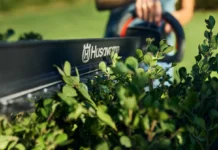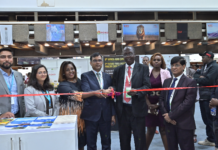Cape Town – In a bold declaration that signals the rising prestige of one of Africa’s most influential commodity gatherings, Hibarri CEO Anje Kruger has confirmed that the Title Sponsorship of the International Commodity Summit will not be sold for less than R10 million.
“We have developed a lot of brand equity,” Kruger said in a statement this week. “We know what we’re holding onto.”
According to sources close to the summit’s architecture, several foreign entities, including Middle Eastern funds, Swiss trading conglomerates, and even rival African jurisdictions, have floated interest in “supporting” or even relocating the platform to their economies.
The concern, however, isn’t just foreign ownership. It’s foreign narrative control on the main stage. In a world where access is everything, the summit’s true value may not lie in what it sells, but in what it refuses to sell.
While insiders have reported sponsorships selling between R50,000 and R1,250,000, these levels reflect supporting and category-specific partnerships rather than the coveted title sponsorship. Such tiers offer valuable branding and networking opportunities but do not grant the strategic influence or access to the summit’s highest decision-making forums. Opportunities to hold the title come infrequently and only one company will hold the title each year.
“By rotating title ownership every second year, we preserve the essence of the Summit and the institutional knowledge behind it, because the organization itself doesn’t get sold. The name simply gets hired.” Kruger says.
The Springboks, South Africa’s world-champion rugby team, attract sponsorship deals ranging between R80 million and R120 million over multi-year terms. MTN’s headline sponsorship of Bafana Bafana – the national football team – is understood to be worth over R50 million for a similar multi-year engagement, excluding performance incentives and broadcast exposure.
And yet, for all the passion and visibility those teams command, they do not host heads of state, move national energy policy, or unlock billions in project finance. Nelson Mandela once said that “sport has the power to unite people” but what he forgot to mention was that “business is the biggest sport in the world”. The conference’s name may very well become one of the continent’s rarest marketing assets in the coming years.
“It’s a collector’s item,” an insider executive said privately. “You don’t buy it for exposure. You buy it because it marks your place in history. You don’t buy the logo. You buy access to high velocity capital, and the ripple effect”.
The Super Bowl – America’s premier sporting event – commands headline sponsorship deals in the range of $50 million to $70 million for a single year, with multi-year contracts easily exceeding $200 million. Similarly, headline sponsors of the NBA Finals or the Olympics pay tens of millions of dollars for branding rights, global exposure, and exclusive access to elite audiences.
Kruger explains, “In sport, sponsorship often buys airtime and consumer attention for thousands or millions of mini-deals. Here, it buys a seat at the table where Africa’s future is negotiated.”
As global demand for Africa’s critical minerals intensifies, so too does the interest from multinational sponsors, lobbyists, and political actors seeking to shape the narrative from within. Behind closed doors, some have reportedly offered double or triple the asking price – not for exposure, but for influence.
But Kruger insists that the summit’s integrity is not negotiable. “This isn’t a project for sale. It’s a cultural asset. The summit belongs to the continent,” she said. “It has not reached an age of maturity for sale of the business. But the title is ready now.”
With global interest in African resources at a generational high, the summit plays a delicate diplomatic role: providing neutral ground for resource nationalism and foreign direct investment to coexist. If it slips into external hands, South Africa may find itself attending an African conversation it once hosted.
“This is not a product. It’s a platform. And platforms of this kind – when designed properly – are rare. They cannot be rebuilt once moved. You lose the soil, and you lose the soul.” Kruger mentioned.
The International Commodity Summit has quickly gained a reputation as a critical deal-making platform for government leaders, multinational mining houses, commodity trading firms, and energy investors. The event’s growing international pull – and its concentration of executive-level attendees – positions it alongside global benchmarks like Mining Indaba, African Oil Week and Manufacturing Indaba.
The summit has seen Swiss commodity traders fly in overnight for a single handshake, energy ministers reroute state visits, and CEOs of multi-billion dollar firms step onto the same stage as junior miners hungry for capital. Every encounter is orchestrated with intent.
Venture capital firms, both domestic and international, are increasingly active participants, seeking early access to disruptive startups and infrastructure projects that promise scalable impact. The summit provides an unrivaled environment for these investors to engage directly with policymakers, industry leaders, and project developers – a dynamic rarely replicated elsewhere on the continent.
“We hope to stimulate a stronger Venture Capital community on the continent,” Kruger adds. “There are many high-growth opportunities such as early-stage mining ventures, renewable energy projects, agri-tech startups, and many resource based opportunities, but Africa needs risk capital – in bulk.”
What began as a regional commodity forum has, under Hibarri’s management, transformed into a continental strategy engine – one that blends diplomacy, investment, trade, and soft power into a single, three-day ritual. It doesn’t just reflect Africa’s economic future. Increasingly, it may very well direct it.
For now, the summit remains rooted on South African ground. But the eyes watching it are increasingly international. And if history has taught anything, it’s this: those who shape the room, shape the future.
South Africa still holds the room.
But for how long? (Hibarri CEO Anje Kruger on the R10 Million Price Tag for the International Commodity Summit’s Crown)








